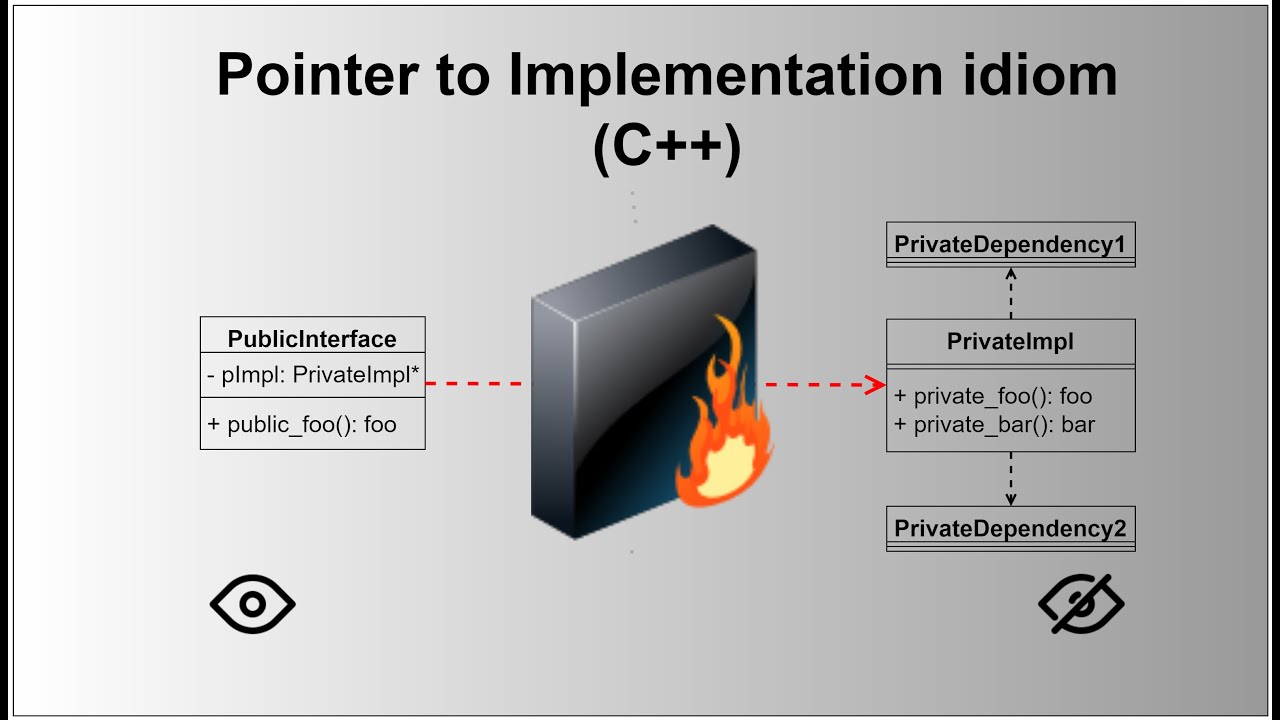
June 09, 2025
Implementing the Pimpl Idiom in C++: Enhancing Encapsulation and Compilation Time
Large C++ projects may be frustrating due to lengthy compilation times. A simple change in an implementation file delays the build for what seems like forever. Pimpl, short for "Pointer to Implementation", can change the game in certain scenarios. Improves encapsulation and greatly decreases compilation requirements. This article explains the Pimpl idiom, how to implement it in C++, and its advantages to projects. Let's get started.
What is the Pimpl Idiom?
Pimpl is a design pattern that hides class implementation. The concept is simple: you specify a pointer to an implementation class in your public class interface, and the implementation is in a.cpp file. This cleans the interface and decreases the effect of implementation changes on class-dependent code.
Improving encapsulation and reducing compilation time are the main goals of Pimpl. In a well-structured Pimpl, internal implementation modifications will not affect the rest of your codebase. Other modules only see the relevant declarations and the implementation class's forward declaration in the header file. If you modify the internals but keep the interface the same, your code will not need to recompile.
Step-by-Step Example
Let's see how we can use the Pimpl idiom in real life. I will guide you through the process one step at a time.
First, we need to set up the header for our class. The class will have a private pointer that points to its implementation. This is what it looks like:
class MyClassImpl; // Forward declaration of the implementation class
class MyClass {
private:
MyClassImpl* impl; // Pointer to the implementation
public:
MyClass();
~MyClass();
void performTask(); // Method that delegates to the implementation
};MyClass does not show any information about how it works inside. It only contains a pointer to MyClassImpl, which is mentioned but not fully defined in the header. We'll define MyClassImpl later in the source file.
Now, let's go to the implementation file (MyClass.cpp). This is where the information can be found:
class MyClassImpl {
public:
void performTaskImpl() {
// Perform the actual task
std::cout << "Task performed!" << std::endl;
}
};
MyClass::MyClass() : impl(new MyClassImpl()) {} // Constructor initializes the pointer
MyClass::~MyClass() { delete impl; } // Destructor cleans up the memory
void MyClass::performTask() {
impl->performTaskImpl(); // Delegates to the implementation class
}Our class logic is in MyClassImpl in the implementation file. By invoking impl->performTaskImpl(), MyClass delegated work to its implementation. MyClass's public methods reveal just what is essential to the outside world, minimizing the interface.
Benefits of the Pimpl Idiom
After seeing how the Pimpl idiom works, let's explore its main benefits.
Encapsulation is the first clear benefit. Hide the implementation details behind a pointer to separate the interface and implementation. The header file does not need to include class internals, making the code simpler to read, maintain, and expand. Since implementation changes do not effect the interface, you may change the internal structure without disrupting other programs that relies on the class.
Time savings during compilation is another benefit. Large projects frequently have multiple header files, and changing one requires recompiling all dependent files. The Pimpl idiom hides the implementation behind a pointer and defines it exclusively in the.cpp file, thus updating member variables or logic does not require recompiling class interface-dependent code. In big projects where implementation files change regularly but the interface stays constant, this may save a lot of effort.
Finally, the Pimpl idiom allows versatility. Since the interface stays the same while the implementation changes, you may innovate and improve your internal logic without causing a large recompilation chain reaction. Changing the public interface will not effect your codebase if you restructure or add features to your implementation in the.cpp file.
Considerations and Trade-offs
The Pimpl idiom offers numerous benefits, but there are also drawbacks.
The most obvious expense is pointer indirection. Accessing the implementation requires a pointer dereference, which could slow down speed-critical applications. This cost is usually small compared to faster compilation and better encapsulation.
Memory management complexity is another drawback. With a pointer to the implementation, construct and delete the object correctly. Complex constructors, destructors, and memory management concerns may result. This is possible if you use smart pointers like std::unique_ptr, which automatically cleans memory.
Finally, Pimpl may not be ideal for smaller, performance-sensitive classes when pointer dereferencing and complexity outweigh the benefits.
Conclusion
Pimpl is a strong C++ idiom that improves code maintainability and performance. Hide implementation information behind a pointer improves encapsulation, cleans your program, and speeds up compilation, which is particularly useful in big projects. As with any design style, pointer dereferencing overhead and memory management complexity must be considered. However, Pimpl is worth considering for big, modular applications.
792 views
